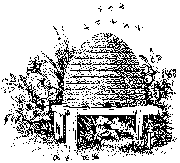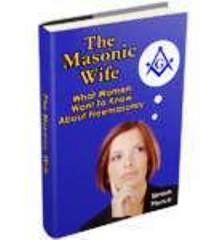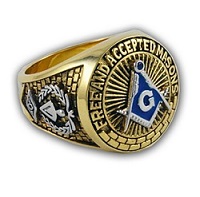The Lodge Master

Duties of the Worshipful Master
of the Lodge
As the Masonic lodge's leader, the Worshipful Master wears many hats. His duties and responsibilities include everything pertaining to his lodge during his elected year.
- Ability to perform Ritual and Degree
Work
- Masonic knowledge of Masonry’s science
of morals, symbols and allegory.
- Delegation of duties to his officers
- Delegation of duties to Lodge
Committees
- Lodge regalia maintenance and upkeep
- Trestleboard / Tracing Board
Communication
- Scheduling of all functions
- Provides ongoing Education to the
brethren
- Provides necessary updates of the Lodge
By-Laws
- Oversees all Financial issues of the
lodge
- Represents his Lodge at Grand Lodge
Are you soon to become your lodge Master?
The greatest honor comes to a brother when he is elevated to the Chair as the Lodge Master, the Worshipful Master of the Lodge.
However, it is with mingled feelings of pleasure and anxiety when the gavel of authority is placed into their own hand.
EARLY PREPARATION:
Early preparation is ABSOLUTELY NECESSARY so that you do not become a Lodge Master in name only. It is very important that you arrive at this chair with a feeling not only of its authority, but fully confident of your abilities to handle that authority.
Much like the CEO (Chief Executive Officer) of any well run corporation, the Lodge Master has many duties to perform.
First and foremost, like the CEO, he must have a strong working group of subordinate officers to help him carry out the tasks within his Blue Lodge.
While many people’s first thought is that to call someone “Master” means that you feel you are supposed to “serve” them, actually, in Freemasonry, the opposite is true.
The title of "Master" signifies that of a well versed "teacher," and not that of the Almighty.
Elected by the brethren, he is placed in this special position to serve their needs. In essence, the Master’s job is much like the Queen Bee’s job in the symbolic Freemasonry beehive.
 Beehive of Industry - One of Freemasonry's Masonic Symbols
Beehive of Industry - One of Freemasonry's Masonic SymbolsMany Freemasons wonder what the significance of the Masonic beehive is to their craft. Let’s take a look at it:
Queen bees develop from larvae, which is selected by the worker bees. She is specially fed Royal Jelly so that she becomes larger and therefore, can produce and retain a greater number of worker bees during her lifetime for the benefit of the hive.
Without being chosen by her “brethren”, to become the “Queen Bee”, she would grow up to become a worker bee, just like all the rest.
While she is continuously surrounded by worker bees who meet her every need, her sole function is to serve as the reproducer of her species.
During her life as the Queen Bee, she will usually
only leave the hive once…and that is to reproduce. From this one-time outing,
she will be able to lay eggs for the rest of her life, which is approximately
2-7 years.
A well functioning lodge (I mean hive) consists of one Queen bee,
(Master of the Lodge) many worker bees and a few drones. A well functioning
beehive is a very busy place, indeed,…industry being each bee’s highest
virtue…with the exception of the drones.
Drones are larger than the worker bees,
however they do absolutely nothing to promote the welfare of the hive. They do
not gather nectar, make honey or make beeswax. They do not cap off each cell of
honey that has been stored nor do they fan the cell to dry the bees wax. They
also do not perform any housekeeping tasks toward the common good of their
fraternity nor do they educate the younger bees in how to perform the work.
Needless to say, the drones do not worry about having enough honey stored to
take the fraternity through the long Winter. The worker bees must feed the
drones or the drones would starve and die.
The only reason the drones are kept alive by the worker bees is to promote the reproduction within the hive. As you can see, the hive needs very few drones if it is to function properly.
If too many drones have been produced by the
Queen Bee, their excess numbers drag down the abilities of the entire hive
because each working member has to attempt to care for and feed these
non-working members of their fraternity without receiving anything in return.
In the bee world, their excess numbers are internally counted and when the
drones numbers exceed their usefulness, the worker bees drag these non-working
members of their institution to the front door of the hive where they are left,
alone to perish…not because they feel no charity, but simply because for their
fraternity to survive, they cannot continue to nourish and support non-working
members.
Therefore, Worker Bees understand that:
- They must elect the strongest of the
larvae to become their Queen (Lodge Master).
- If they do not continue to help the
Queen (Lodge Master) reproduce offspring; they will die.
- If each worker bee does not work in unison with the other members of the fraternity to feed, nurture and retain each and every other worker bee member of their institution, their industrious fraternity will die.
Freemasonry is full of allegory. Allegory means that you are representing one thing, when you’re actually alluding to another thing. It is a literary style which means you teach by innuendo.
Most allegories include a “moral of the story”. The story of the beehive, above, is an allegory. The last paragraph beginning with “Therefore, Worker Bees understand that:” contains the moral of the story.
“Thus was man formed for social and active life, the noblest part of the work of God; and he that will so demean himself as not to be endeavoring to add to the common stock of knowledge and understanding, may be deemed a drone in the hive of nature, a useless member of society, and unworthy of our protection as Freemasons.” … Carl H. Claudy, The Master’s Book, Published by The Temple Publishers, copyright 1946
While many believe that since they are next in line to hold the gavel, they may simply perform their duties in the same manner as the previous Master performed his duties; this may or may not be the case. You be the judge.
The Loge Master is:
- Elected by the brethren to become their
Master
- The person whom all eyes fall upon for
direction.
- CEO of the worker bees.
A good Master realizes that if he does not
help the brethren to gather new members, feed (teach), nurture (socialize) and
retain each member of their fraternity, his lodge will dwindle in size or by
necessity must merge with another lodge.
THE IDEAL LODGE MASTER
The Ideal Lodge Master performs all of the following tasks throughout his year:
- KNOWLEDGE OF
MASONIC LITERATURE:
Knows something about Masonic literature and which books to recommend to his brethren.
- PROMOTES PEACE
AND HARMONY:
Attempts to promote peace and harmony within his lodge.
The Lodge Master soothes the unhappy and brings together friends who have quarreled.
He avoids all jealousies. He is a friend to every Past Master, every officer and every brother.
- FISCAL
RESPONSIBILITY:
Leaves his lodge better off financially than he found it. He spends less of its income and receives full value for the money he spends.
The craft's Lodge Master knows at any given time what the lodge’s account balances are and keeps the Lodge’s records, so as to draw commendation.
- GRAND LODGE:
As Lodge Master, he pays full attention to the duties with which he has been bestowed in his Grand Lodge.
He faithfully attends, intelligently takes part in the deliberations, votes with the interests of his Jurisdiction at heart and is a constructive force within the governing body of Freemasonry.
- INTERESTING
MEETINGS:
Holds interesting meetings. He is willing to work and work hard to arrange programs and plan events which are not only interesting, but instructive to the brethren.
He knows that basic ritual degree work is necessary, but every other week, he provides something containing instruction and education to his brethren.
- MASONIC
EDUCATION AND INSTRUCTION:
Provides continuous, good and wholesome instruction and education. No brother should ever leave one of the meetings without learning something or experiencing something said by its Master that does not leave a higher thought of Masonry in his heart.
- MASONIC
RITUAL, DEGREES & KNOWLEDGE OF THEIR MEANINGS:
His degrees are dignified and well put on. His candidates have not only ritualistic instruction, but are told something of why and what the ritual means so they, too, may “become good and faithful brethren among us”.
- LEADERSHIP AND
PREPARATION:
Provides leadership in helping his officers learn Masonry, so that when their time comes to sit in the Lodge Master’s chair, they, too are well prepared.
- THE ILL:
The Lodge Master considers the ill and the sorrowing as his personal care. No brother should take to his bed but that the Master sees to him to bring what cheer he may. No widow or fatherless child of one of the brethren should ever go uncomforted from the leader of the lodge.
- COMFORT:
Knows the facts about the needy brother, or family of a brother and makes it his business to bring a sympathetic report to his Lodge brethren.
- DIGNITY:
Brings dignity to his office.
- TIRELESS:
The Lodge Master of the symbolic lodge counts not his personal pleasure, his social engagements, his time of rest, recreation or even his sleep when his Lodge calls.
During his year as Master, he puts his Lodge and its needs before anything and everything of a personal nature (excepting God and family) in his life.
- HONORABLE
SERVICE:
Takes pleasure in his service to his lodge, knowing that men view his position to be honorable.
- PUNCTUALITY:
Is punctual. He has no more right to waste the brethren’s time than he has to waste the Lodge’s money.
- A BALANCE
SCALE:
Never takes sides but is a balance wheel.
- FAIRNESS:
Rules firmly and justly; but knows that “firmly” must be tempered with kindness and “justice” must be tempered with mercy.
- ENTHUSIASM:
The Lodge Master of his blue lodge is enthusiastic about his work.
- LIMITATIONS:
Conscious of his own limitations.
- REQUESTS
COUNSEL:
Quick to seek counsel and advice and take his time to map the right course.
- LISTENS TO
SUGGESTIONS:
Strong and confident enough that he is eager to listen to suggestions and intelligent enough to follow only those suggestions which he deems wise.
- POLICIES, NOT
DETAILS:
The Master of the Lodge is primarily concerned with policies rather than details so he does not lose his way.
- DELEGATES
TASKS:
The ideal Lodge Master delegates the details to carefully chosen committees and not only requests their reports at each meeting, but expects to hear each committee’s issues, their findings, and their determinations so that both he and the brethren are continually kept up-to-date on their work.
- LIVING FORCE
AMONG THE LODGE'S BRETHREN:
Is an ideal Lodge Master because he is an ideal Mason. He strives to live the Masonic life so that all his brethren may see him not as a mere figurehead, but a vital and living force for good in their lives.
- THE MASTER'S
HAT:
The Lodge Master is humble, knowing that it is to the hat, his elected position, that the brethren honor and not to the man under the hat.
While he has both power and place, he may never think of self, but only of an honorable duty to his brethren.
Like any good CEO, the Ideal Lodge Master delegates.
If he does this well, his job becomes very manageable, indeed
and he may obtain the abilities of the Ideal Master.
If he does not delegate
well, his year will be continually filled with fires to put out until he becomes
over-burdened, tired, unhappy…and remembered as a drone.
Simon-Sez: Don’t let this be you.
SECRET
WEAPON OF THE LODGE MASTER:
The man in whose hand holds the gavel, wears many hats, however his secret
weapon lies in his powers of delegation to his committees....and his notebook.
MAKE A LIST OF LODGE COMMITTEES AND COMMITTEE MEMBERS:
It is best to begin in your year as Senior Warden to make a list of lodge committees and choose the members who you feel would best be able to serve upon them. If you are currently the Lodge Master, it’s not too late to start.
Do not simply choose your friends, as you may not be best served. While your Junior Warden should serve as the Chairman of your Refreshment Committee, choose 2 other members of the brethren to be on the Refreshment Committee who like to cook.
Choose someone with a head for numbers, a bookkeeper, accountant, etc. as the Chairman of your Auditing and Budget Committees. Choose someone whom you feel is somewhat conservative, but fair, as the head of your Charity Committee.
To make your year go more smoothly, you should delegate / assign 3 members to each of the following committees.
Each committee should have a Chairman and 2 members with the exception of the Masonic Home Representative, which entails just 1 member:
Related Pages:
Auditing Committee
Preparation Committee
Masonic Education Committee
Ritual Committee
Sickness Committee
Masonic Board of Relief
Committee for Suspension for Non-Payment of Dues
Masonic Home Information Representative
MASONIC LODGE COMMITTEE MEMBERS:
Balance your choices of committee members between the need to place the Lodge’s officers as chairmen of as many committees as possible because they need to learn these duties for the day when they become Worshipful Master AND choosing a member with the knowledge, skill or desire to perform their duties within a specific committee.
LODGE COMMITTEE INTERACTION:
Do not let
these Committees languish because you do not request their genuine help with
lodge issues.
As Lodge Master, do not request their reports and
continually allow their answer to be: “We have nothing to report.”
If this continues often, ask about specific items within their scope which the brethren of the lodge have an interest in.
Draw them into each lodge meeting as the
important members with important duties that they are.
When each Committee is
asked for their report, they should be fully able and fully ready to speak to
the brethren about items that have come to their attention which affect the
entire lodge.
Simon-Sez:
Purchase
a 1” notebook. Place your name on the cover and the spine. Into this notebook,
you will place the items that you will need at your fingertips during each and
every lodge meeting. With this notebook in hand, you can confidently make
decisions, ask and answer questions and vote in good conscience when requested
to do so.
While each and every lodge member should be
in possession of their own notebook, it is crucial that the Lodge Master and all Officers of the Lodge have this information readily at hand so
they may perform their tasks to the best of their abilities.
Having this
notebook with them at each lodge meeting also saves them a ton of
personal time in having to dig out the Budget from their home or office
desk, finding the latest copy of the By-Laws for the By-Laws meeting the next
week, knowing the exact date of a function when someone asks you, etc.
Not
only does it save you time, but you are perceived as a member of the brethren
who is prepared for your duties and obligations and prepared to progress to the next
chair.
LODGE NOTEBOOK ITEMS:
Here is a partial list of the items your lodge notebook should contain:
- Up-to-date Lodge Name and Address
Directory
-
Lodge
Officer names and phone numbers
- Budget
- List of Committees, Committee member
names and phone numbers
- Copy of the most up-to-date By-Laws of
your lodge
-
Lodge
Calendar
- List of social functions for the year
- Copy of your Grand Lodge Achievement
Award
Application (if applicable)
- Blank notebook paper for notes about
questions or
issues that you have been asked which you must
research before you return to lodge with an answer.
Make sure you keep a pen with your notebook or in your shirt pocket when you go to lodge.
With your notebook in hand, you are now fully prepared to become a fully functional worker bee in the hive (I mean lodge). You can:
- Vote your conscience because you know
what your lodge's budget and check book contain.
- Call any member, when necessary, not
just the
members which you've made your Fave 5 in your cell phone.
- Answer questions asked of you
on-the-spot, because you
have all the pertinent data right with you.
...And...you, the Lodge Master, like all good CEOs...Chief
Operating Officers...are confident of your personal abilities, have delegated
the details to your committees and are truly living up to and deserving of your title as
Master of the Lodge.
Here is a fill-in-the blank form for the Lodge Master Committees to whom the Lodge Master delegates to and presides over. Feel free to print it out and insert your specific brethren’s names to place into your notebook.
More Related Pages:
5 Fast Methods To Find the Information You Want to Learn About
- Search Box - Use the Search Box at the top of your page.
- Site Map - Use my Site Map page to find the topics you are most interested in.
- Carousel - Use the carousel of pages at the top of your screen.
- Menu Icon - On MOBILE, click the MENU button at the top of each page.
- Masonic Books - Browse through a selection of Masonic books.






